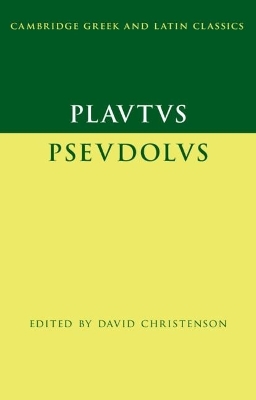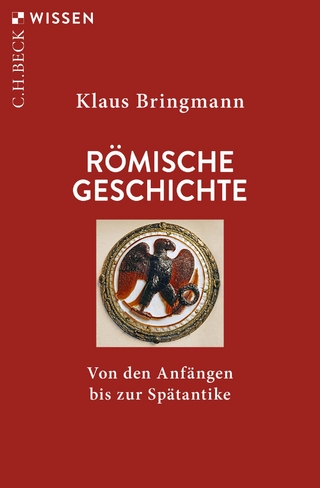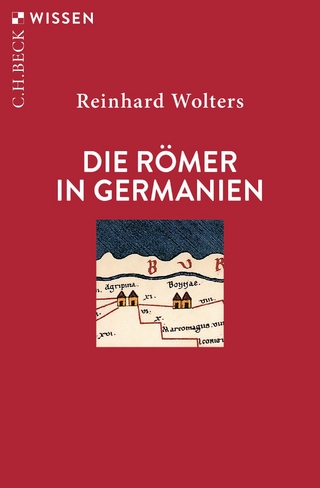
Plautus: Pseudolus
Seiten
2020
Cambridge University Press (Verlag)
978-0-521-76624-1 (ISBN)
Cambridge University Press (Verlag)
978-0-521-76624-1 (ISBN)
This edition is designed to facilitate reading of Pseudolus, one of Plautus' most innovative and delightful plays and a lens into Roman slave society. It assumes no specialised knowledge of early Latin, Plautus' social-historical milieu, or ancient comedy and provides students with all the help needed to understand the Latin.
Pseudolus of all Plautus' comedies most fully reveals its author's metapoetics. As its eponymous clever slave telegraphs his every move to spectators, Pseudolus highlights the aesthetic, social, and performative priorities of Plautine comedy: brilliant linguistic play, creative appropriation of comic tradition, interrogation of convention and social norms, the projection of an air of improvisation and a fresh comic universe, and exploration of dramatic mimesis itself. The extensive Introduction analyses Plautus' delightful comedy as a stage-performance, the comic playwright's translation and adaptation practices, his innovative deployment of language and metrical and musical virtuosity, as well as the play's transmission and reception. In addition to detailed elucidation of the Latin text, the Commentary examines Pseudolus as a lens into Roman slave society at the time of its debut at the Megalensian festival of 191 BCE. The edition engages throughout with current criticism and issues of interest to both students and scholars.
Pseudolus of all Plautus' comedies most fully reveals its author's metapoetics. As its eponymous clever slave telegraphs his every move to spectators, Pseudolus highlights the aesthetic, social, and performative priorities of Plautine comedy: brilliant linguistic play, creative appropriation of comic tradition, interrogation of convention and social norms, the projection of an air of improvisation and a fresh comic universe, and exploration of dramatic mimesis itself. The extensive Introduction analyses Plautus' delightful comedy as a stage-performance, the comic playwright's translation and adaptation practices, his innovative deployment of language and metrical and musical virtuosity, as well as the play's transmission and reception. In addition to detailed elucidation of the Latin text, the Commentary examines Pseudolus as a lens into Roman slave society at the time of its debut at the Megalensian festival of 191 BCE. The edition engages throughout with current criticism and issues of interest to both students and scholars.
David Christenson is Professor of Classics at the University of Arizona. He is the author of a Cambridge Greek and Latin Classics Series edition of Plautus' Amphitruo (2000), and his volumes of translations include Hysterical Laughter: Four Ancient Comedies about Women (2015), Roman Comedy: Five Plays by Plautus and Terence (2010), and Plautus: Casina, Amphitryon, Captivi, Pseudolus (2008). In 2019 he published a companion to Plautus' Casina in the new Bloomsbury ancient comedy series.
Introduction; PSEVDOLVS; Commentary.
| Erscheinungsdatum | 10.07.2020 |
|---|---|
| Reihe/Serie | Cambridge Greek and Latin Classics |
| Zusatzinfo | Worked examples or Exercises |
| Verlagsort | Cambridge |
| Sprache | englisch |
| Maße | 144 x 222 mm |
| Gewicht | 590 g |
| Themenwelt | Geschichte ► Allgemeine Geschichte ► Altertum / Antike |
| Geisteswissenschaften ► Sprach- / Literaturwissenschaft ► Anglistik / Amerikanistik | |
| Geisteswissenschaften ► Sprach- / Literaturwissenschaft ► Literaturwissenschaft | |
| ISBN-10 | 0-521-76624-9 / 0521766249 |
| ISBN-13 | 978-0-521-76624-1 / 9780521766241 |
| Zustand | Neuware |
| Haben Sie eine Frage zum Produkt? |
Mehr entdecken
aus dem Bereich
aus dem Bereich
von den Anfängen bis zur Spätantike
Buch | Softcover (2024)
C.H.Beck (Verlag)
12,00 €


